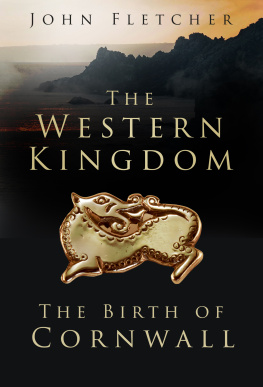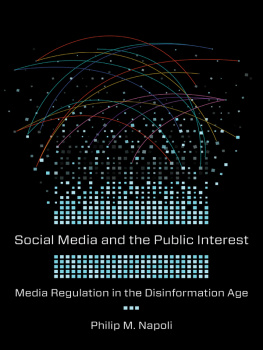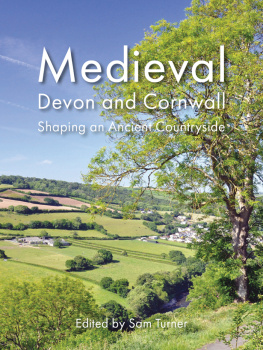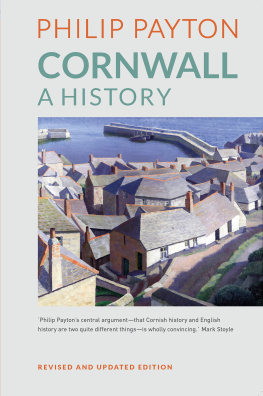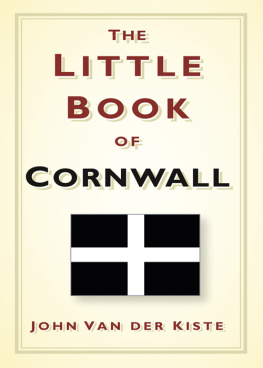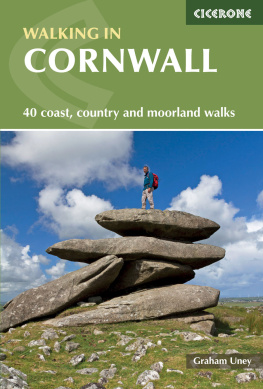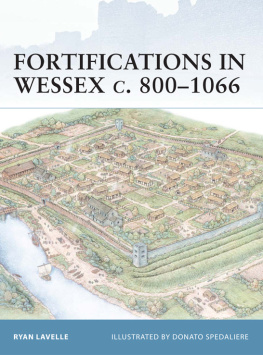Contents
Guide

First published 2022
The History Press
97 St Georges Place, Cheltenham,
Gloucestershire, GL50 3QB
www.thehistorypress.co.uk
John Fletcher, 2022
The right of John Fletcher to be identified as the Author of this work has been asserted in accordance with the Copyright, Designs and Patents Act 1988.
All rights reserved. No part of this book may be reprinted or reproduced or utilised in any form or by any electronic, mechanical or other means, now known or hereafter invented, including photocopying and recording, or in any information storage or retrieval system, without the permission in writing from the Publishers.
British Library Cataloguing in Publication Data.
A catalogue record for this book is available from the British Library.
ISBN 978 1 8039 9137 5
Typesetting and origination by The History Press
Printed and bound in Great Britain by TJ Books Limited, Padstow, Cornwall.
eBook converted by Geethik Technologies

CONTENTS
INTRODUCTION
This book is the result of around seventeen years of research and passion for the Early Medieval history of Cornwall and the south-west. It began when I arrived at the University of Plymouth as a teenaged undergraduate. Already a keen Viking reenactor, I thought it might be fun to look into the regional history of Devon and Cornwall.
That passing whim ended up sending me down a rabbit hole, tracking down the often elusive and widely scattered hints of a history that was much more fascinating than it was ever given credit for. The availability and accessibility of that history has come on leaps and bounds since then. Books like The Promontory People by the late Craig Weatherhill throw a much-needed spotlight on the era, while the number of Cornish finds on the Portable Antiquity Schemes online catalogue has increased year on year.
This work is an attempt to pull together some of this new research, as well as older works that have not been given their proper due, and present not only a new timeline of Cornish history over the Early Medieval period but also how these events helped to shape and preserve Cornwalls unique identity.
That identity is one of Cornwalls biggest draws. It sometimes feels like Cornwall is in fact two different places. One is the present-day duchy; a land of pleasant beaches, hilly fields and holiday homes that features fondly in the memories of many people throughout the UK but which nonetheless seethes with an undercurrent of conflict between those who enjoy visiting each summer and those who often struggle to live in those same sunny villages.
The other Cornwall seems more mythological, the realm of Arthur and of Giants, where Mesolithic monuments sit astride modern farmers fields which have been laid to the same plan for thousands of years. There is much that is great and fascinating in this past, but it always seems perhaps just out of reach; something that is teased at but which shifts out of sight when one tries to focus on it.
Of course, each of these Cornwalls is tied inexorably to the other. The mystery and mystique of Cornwall is as much a draw to visitors as the spotless beaches, while the modern handling of Cornish affairs, the dilution of its identity and complex history to being just another of Englands counties and the complicated web of economic issues forcing many of its young people abroad all serve to further hide and obscure its past.
What cant be ignored is that, whichever Cornwall one finds oneself in, Cornwall feels different. Despite its long inclusion in the English state and the pressures of a sometimes violent history, there is still an unmistakable Cornish identity that can be felt. It makes itself known in the black and white Baner Peran flying from houses and town centres and in the oddities of speech and language, even the occasional smattering of revived Cornish language heard on the street and in cafes.
The question then becomes where does this identity come from? Is it the product of nineteenth-century revivalists or does it harken back to something older, something in that mythological past that still makes itself felt in the present?
To answer the question, as is so often the case with questions of national identities in the British Isles, one must look at the Early Medieval period; those centuries between the end of Roman rule in Britain and the coming of the Normans in 1066. Over this crucial period were forged both the concepts of individual peoples the English, the Scots and the Welsh as well as the borders of nation states that we would recognise today.
Cornwall and the Cornish are also among them, and preceding them, and the story of how Cornwall changed from the heart of the great western kingdom of Dumnonia into its own independent Kingdom of Kernow, then finally became part of Wessex and the wider English state, is a tale not only of battles and bloodshed but of diplomacy and compromise.
Crucially, it is a story about survival. About how, when defeat and annihilation seemed perhaps inevitable, the Cornish found a way to bend with the storm and in the process kept their unique language, culture and history well into the modern era.
This book attempts to tell that story, pulling together evidence from documentary, archaeological and other sources to shed light on the often half-remembered history of Cornwalls past. It is inevitable in such an undertaking that some evidence may be missed or that others may come to their own conclusions. Ultimately I can only hope to present the results of my own research and let the reader decide on the merits of the case I lay out.
A couple of final notes regarding the descriptions used for Cornwalls opponents and eventual allies. I have tended to discuss the Germanic incomers to Britain as Anglo-Saxons or Saxons. This is a simplification of the complex origins of the immigrants. However, it is one I still believe is widely recognised and therefore has merit for the ease of both the writer and reader.
Finally, I should warn the reader that this book will deal only lightly and briefly with the Arthurian mythos. These stories have, in the centuries since their initial inception as a Brythonic superheroic figure and eventual transformation into romantic epic, become undeniably linked with Cornwall and the south-west. However, the shadow of Arthurian legend has a tendency to consume all it comes in contact with and has, at times, severely hindered the work of understanding the Western Kingdom as it was, rather than how a poet may have wished it to be.
Certainly there is every indication that tales of Arthur may have echoed around the halls of a Cornish lord in the centuries we will describe. However, we shall keep him in that fantastical realm as it suits him best.
PART 1
SETTING THE SCENE: POST-ROMAN BRITAIN AND THE WESTERN KINGDOM
1
RUIN AND CONQUEST? CHALLENGING TRADITIONAL NARRATIVES
The Early Medieval period, still commonly (and erroneously) referred to as the Dark Ages, has often been painted in the harshest possible tones. It appears in the minds of many people as a time when civilisation faltered; a dark slide into barbarism and chaos that only the glories of the Enlightenment halted and eventually reversed.

